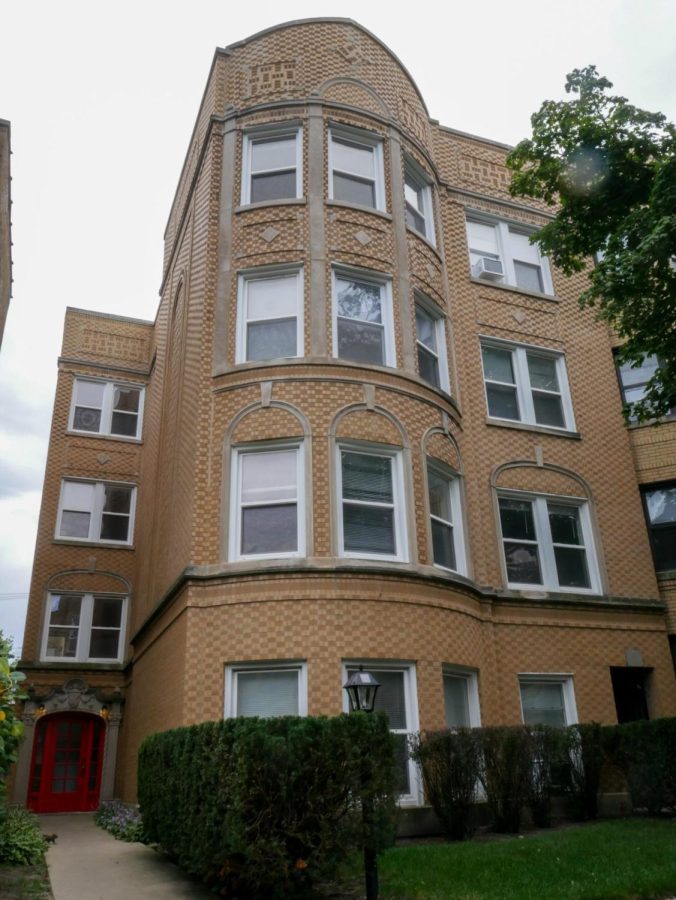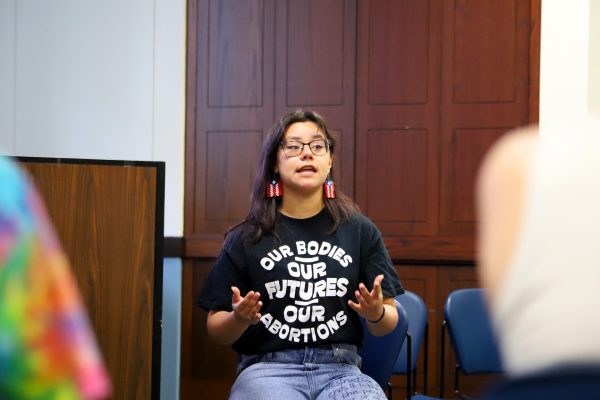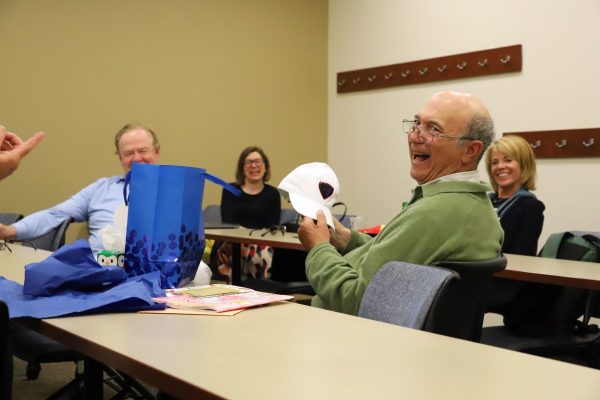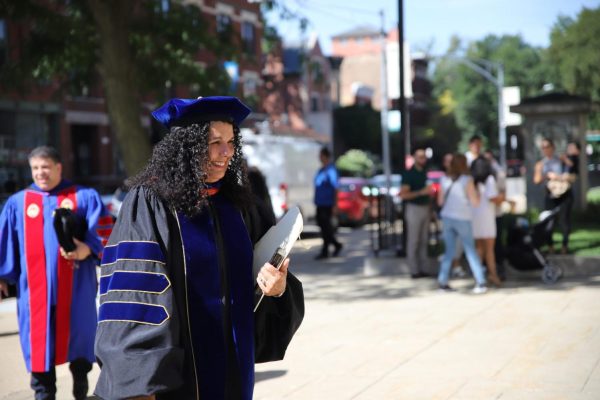‘I would be homeless and [living] outside’: Dax program aids students facing homelessness
Patrick Sloan-Turner for The DePaulia
The Dax program’s new “Cecilia House” in Lincoln Square officially opens on Nov. 8. The unit will house 10 DePaul students in need of housing.
In DePaul sophomore Fiker Shimels’ home country of Ethiopia, receiving an education comes with barriers foreign to U.S. students. An ongoing civil war makes attending school nearly impossible, which is why Shimels knew she had to leave.
“At universities, people are dying; you see young teenagers being raped. It’s very dangerous,” Shimels said. “My parents were like, ‘you need to get out.'”
When Shimels finally made it to the U.S. in 2021, the international student found herself navigating a new struggle threatening her dream of a college education, the financial barriers of attending an American university.
“I came here alone, so I am figuring it out [alone],” Shimels said. “I have to pay my tuition myself and I was struggling.”
With few options, no job and a family almost 8,000 miles away without the means to support her financially, Shimels found assistance through Depaul USA’s Chicago Dax program.
Inspired by the Vincentian mission, Depaul USA first began its Dax program – named after the city in France where St. Vincent De Paul was born – in 2014. When a student comes to Dax in need of help, the program first identifies a living situation that will be a good fit.
Currently, Dax is providing homes for 11 DePaul students between the program’s two Chicago residences. One of Dax Chicago’s homes is in Ukrainian Village, while its newest residence, the Cecilia House, is located in the Lincoln Square neighborhood.
While Depaul USA’s work focuses on fighting various types of housing insecurity, the organization created its Dax program to combat this issue amongst college students, a problem that might not be at the forefront of the public’s mind, even though an estimated 58,000 college students are homeless in the U.S.
“[People] just assume they’re in school, so they have money to be housed, and that’s really the rub,” said Chuck Levesque, president and executive director of Depaul USA. “[Students may] have money for tuition, but they end up not having the money to cover their housing costs, and that’s where they get into trouble.”
Levesque said there are various reasons why students find themselves in a housing insecurity situation. In one instance, an immigrant student couldn’t pay for their education or board because her family’s religious beliefs said that a woman shouldn’t be in school.
“People don’t know about the problem,” Levesque said.” [Homeless students] could look like you. You can’t really tell. It’s not a problem that presents itself physically as clearly as chronic street homelessness.”
While in the Dax program, students must be enrolled at a partner college or university full-time, maintain a 2.0 GPA and work a minimum of 10 hours a week to pay the $150 rental fee for their housing with Dax. To assist students towards achieving their college degree, Dax provides case management, counseling services, food stipends, transportation, textbook assistance and educational reimbursements with the goal of helping students toward independent living.
In Chicago, program expansion is an ongoing focus for employees at Dax. Recently, Dax began a partnership with some of the area’s city colleges to widen its reach across Chicago.
“We are trying to get more buildings on the South Side to accommodate three of the seven Chicago city colleges that we now have a partnership with,” said Stacey Branham, director of Depaul USA Dax program.. “[We want to] expand the program to help as many students as we can, because there is truly a need.”
For a non-profit like Depaul USA, financial challenges are paramount. The acquisition and opening of the Cecilia House wouldn’t have been possible if not for a $1 million donation from a donor who requested anonymity in this story. Securing gifts like these is a crucial ongoing task for Dax’s leadership.
Having the resources readily available is crucial, as students in desperate times can’t afford to wait for help, according to Branham.
“[They’re] running out of resources, running out of options, [asking] what do I have?” she said. “It can go from an exciting time of just being accepted into a program to the most stressful time of your life.”
Branham said financial challenges are an ongoing issue for not only students coming into the program but also those who are fighting their way to eventual graduation.
“People have this preconceived notion of [since] you got into college, and as long as you stay on campus, you’re good. What happens when dorms are full, and they have nowhere to go, or they don’t have any family [here]?”
For Shimels, being an international student came with additional struggles that might be unknown to the average DePaul student.
Shimels began her time at DePaul living in the dorms, but because student housing rates at DePaul can cost close to $6,000 per quarter, she found herself unable to pay for her housing or living expenses.
At DePaul, international students like Shimels are required to pay the full balance of their tuition fees for the quarter a month before classes begin. This makes their financial situation even more precarious. In addition to the stress of having to pay upfront, international students cannot apply for federal student aid and have additional barriers to receiving private loans in the States.
If she hadn’t found the Dax program, she would not have been able to continue her education at DePaul, according to Shimels.
“I would be homeless and [living] outside. . . because I couldn’t pay the bills, or I would have to go back home,” she said.
Some might think taking time off from school is a good option for students facing extreme financial hardship like Shimels was. In Levesque’s experience, this route isn’t viable as many students worry they won’t return to their studies after taking a leave of absence.
“Every single student [we asked] said if ‘I leave, I’m not coming back, I can’t stop going to school.'” Levesque said. “That’s when we decided we wanted to do a program that would help these students.”
The program’s goal is to give students facing housing insecurity the means to obtain all the possibilities that coincide with receiving a college education, according to Levesque.
“This program changes the trajectory of people’s lives,” he said. “We believe if they graduate and connect to the world of work, they are unlikely to have an economically driven episode of homelessness again.”
For Shimels, the Dax program goes beyond providing the financial support needed to achieve her degree. It also allows her to have the type of college experience that every student deserves.
“The things I’ve gotten from [the Dax Program] are more than just housing,” She said. “It’s a family for me.”
Connect with Patrick Sloan-Turner: @PatSloanTurner | online@depauliaonline.com
Connect with Sam Moilanen: @sam_moilanen3 | opinion@depauliaonline.com












